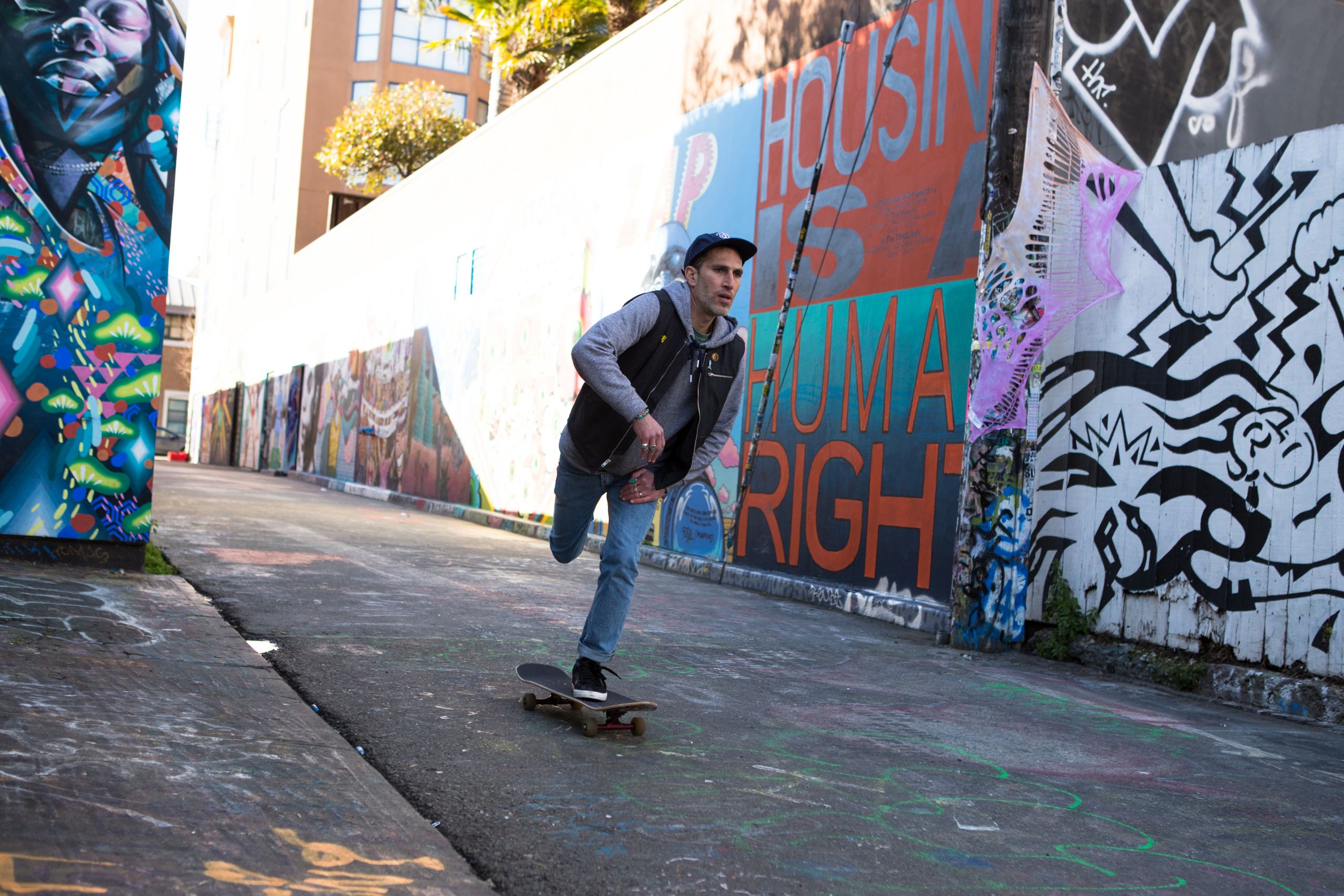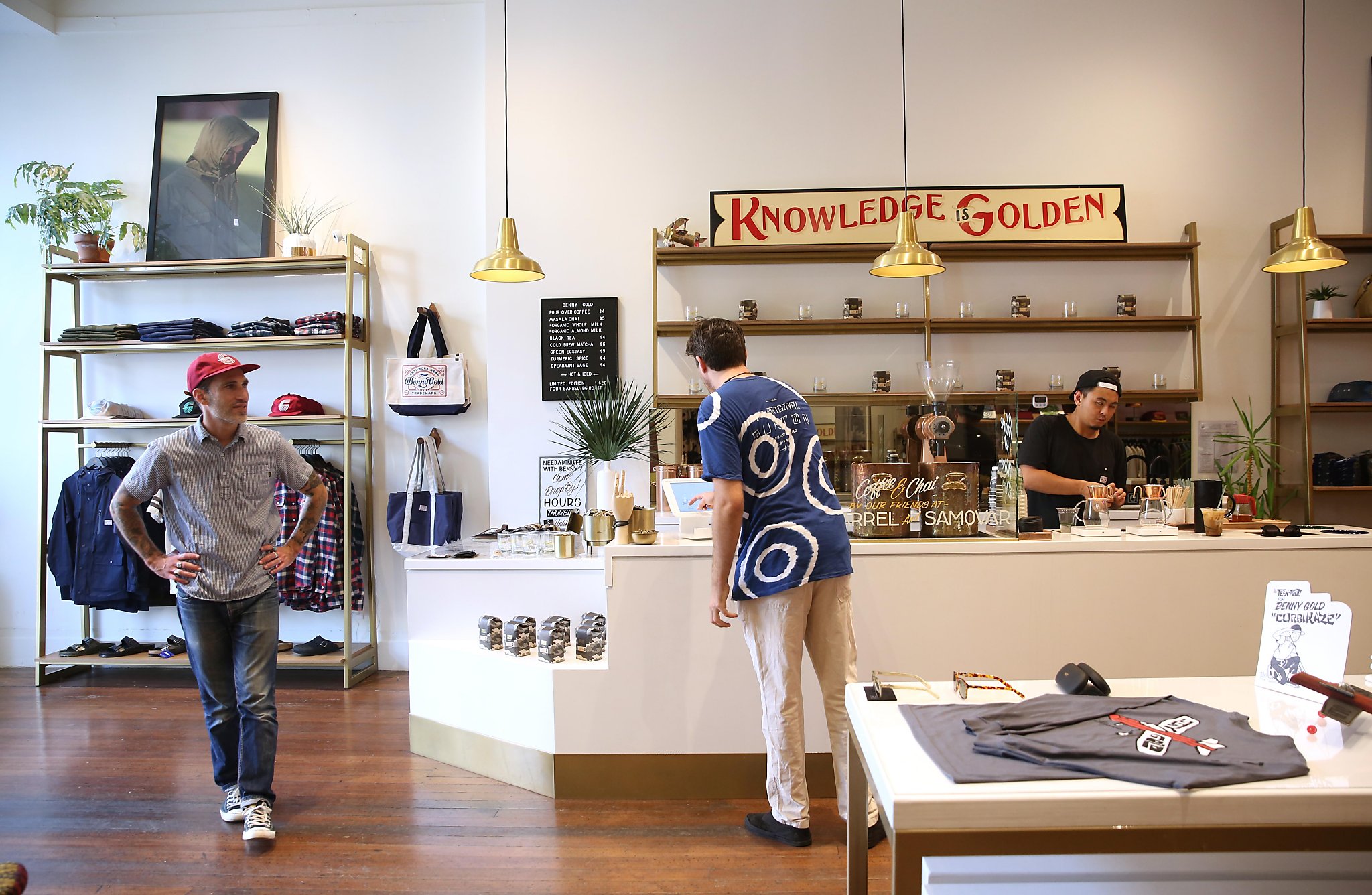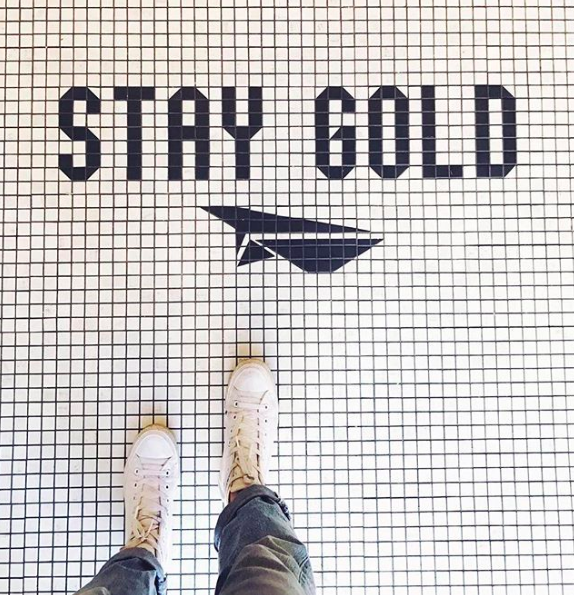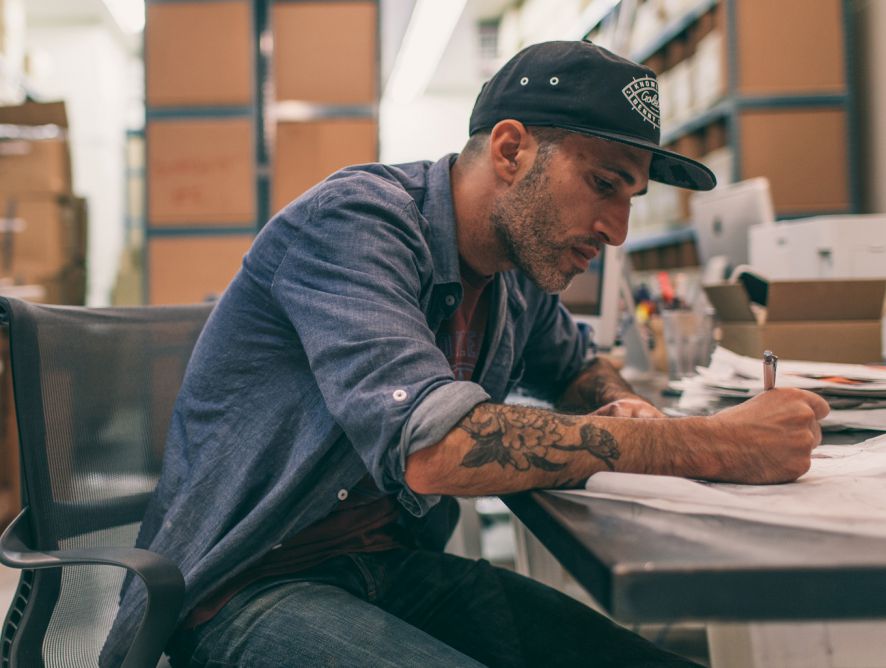Benny Gold shocked fans around the world in January when he announced that he was closing his San Francisco store and discontinuing his brand. It had been a staple of streetwear since the early days, and Gold is considered by many to be one of the pioneers of graphic design within the culture. For those of us that have followed it from the beginning, it was hard to fathom that it was coming to an end.
Change, both personal and external, are at the root of Gold’s decision to put his line out to pasture. Both streetwear and San Francisco’s landscape have shifted greatly during Benny Gold’s 15-year run. There are now hundreds of brands out there competing for shelf space instead of just a handful. And rent in San Francisco’s Mission District has gone up 10-fold in the wake of the city’s most recent tech boom. In short, competition is fierce and the bottom-line is more critical than ever.
Legendary pro skater Jeff Phillips once said, “If I’m not having fun, I’ll quit.” This simple phrase perfectly sums up Gold’s decision. When his creativity was challenged by increased demands to follow trends, and when the designs became secondary to business administration duties, Gold knew it was time to call it a day. You have to tip your hat to him for bowing out gracefully as opposed to sacrificing the legacy of his creation.
In the future, I believe that Benny Gold will be a point of reference as an example of a brand that was well-executed from start to finish. That said, It was only right to provide it a proper send off by giving Gold the platform to tell the story of the final hours of his dynasty.
What led up to your decision to discontinue to the brand?
BENNY GOLD: It started as a little side project where I would just give away shirts to friends. Then, it got really popular; and stores like Zumiez, PacSun, and Active started hitting me up. So, the business grew pretty fast. I opened a retail store to meet the demand, and the line expanded. I started making bottoms, socks, and hats. With that type of growth, you have to become a businessman. You have to worry about making the types of products that sell, and sales forecasting. I’m a creative person and got into it for the sole reason of creating things. I started losing sight of why I started this brand, and what made me passionate about it. I was worrying about payroll, growing, meeting demands, keeping the lights on, and changing toilet paper in the bathroom. It got to a point where the stuff that I was enjoying was becoming less and less of it.
How has the streetwear landscape changed over the last five years?
Streetwear changed a lot. It started as a smaller circle of people who were all making things. The mainstream got ahold of streetwear. Macy’s started making streetwear lines. Louis Vuitton hires Virgil Abloh from our streetwear circles. All of a sudden, everyone knows about streetwear and thinks there’s money in it. The people that were doing it for a long time like me, and all of the brands that were there from the beginning—we didn’t get left behind—but the money is being made by the companies with the big investments that have huge advertising budgets. The range is much broader than just the people in the know now. Before, it was a very cultural thing. If you knew about it, you supported the brands. Now, there are a million brands out there. So you have to advertise.

Image Via SF Chronicle
What about San Francisco itself? That’s undergone a major facelift since the second tech boom. Did that impact your business at all?
When I first started to make some waves, I rented a storefront in the heart of the Mission for $1500 a month. This was 10 years ago. Now, at a storefront that’s just a couple of blocks away, it’s $15000 a month. So it’s hard to make moves that aren’t based on money when you have that sort of overhead. Before, I could make whatever I wanted just to be creative. I had one employee to help me with the store and I was doing all the work. Now, I have a design team under me, a sales team, production guys. With that and expensive rent, I’m making moves just based on money to keep the doors open.
In the statement that you put out on Instagram, you said that you’d rather end the brand on a high note instead of watch it become something that you didn’t recognize. Can you elaborate on that?
I started really considering how to keep the brand moving forward with how much revenue I had to bring in monthly. I weighed out my options and started talking to potential investors. I had been turning down investor meetings since the brand started. I didn’t need it. But it got to the point where for it to move forward, I would need more money.
So I started taking meetings in New York and L.A. Every investor that I met with talked about changing the brand. They would say thing like, “We have to go more urban with it. We need more bang for the buck. We need the shirts to match the current Jordan that’s coming out. We make all of our money in these urban stores in the South. There’s really no money in streetwear stores and skate boutiques anymore because they are so few and far between.” For me to get an investor, I would have to change the brand. I felt a little defeated. I was hoping someone would see value in what was built already instead of trying to change it.
Then, I called all of my big box stores like Zumiez to see how I could get bigger buys. They were like, “We’ll have bigger buys for you if you follow more trends. If you follow my brand, you know that I’ve never been a trend follower. I would always do what I think is cool. They were like, “If you have stuff with cats and pot leaves, we could have way bigger buys.” I was like, “What the fuck?! Have you ever seen my brand? I’m not doing pot leaves, cats, aliens, or whatever is popular right now.”

Image Via Huckberry
You recently started a new job at a design firm. How did the events unfold that lead to you pulling the plug on the brand and taking your new gig? Was there a definitive moment that prompted the decision?
When I realized that I wanted to totally focus on being creative, I put it out in the universe that I wanted to make changes in my life and see what happened. I started talking to people and letting them know that I’m available and open to change. I started taking some meetings. I thought I was gonna go towards tech because that’s what San Francisco is all about. Then, I got this call from this ad agency, Goodby, Silverstein & Partners. They said, “Hey, we heard that you want to make a change. Come talk to us.” I said, “I do, but advertising is not what I want.” I was worried about the hours, and all of that stuff. I have a family. They were like, “Just talk to us.” I went in there, and it was one of the first interviews that I had where we actually talked about the work, and how to move things forward. Every time I went to these tech firms, we talked about management style, how I would avoid conflicts, nothing about work or being creative. With these guys, I felt really valued. I went home, and I had a job offer the next day from them. They’re pretty much like the Illuminati of advertising agencies. They’re big.
How long ago did you get the job offer?
I got the job offer in early December.
And then you were shutting the store down at the end of January.
I really think that when things are meant to be, they just kind of fall in place. And when you fight things is when things don’t really work out the way they are supposed to work because you are trying to force something. So I think it was just time, and the universe put a job offer in my lap that I couldn’t refuse. Everybody knows that I got my start with HUF when they were in San Francisco. They were looking to come back to the city. So they reached out; and everything kind of worked out perfectly. They were looking to get a store. I was looking to get out of a store. So we made it happen.
How did the lease handoff work?
When I decided that I wanted to make a change, I reached out to Keith [Hufnagel]. He told me he was looking to open a store in San Francisco again. I was like, “Dude, it’s perfect timing. I’m looking to get out of one. And I have the best location in the city. It’s between two skateparks and skateboarders fly down Valencia all day. So he flew up with his CEO and looked at it. It was perfect. I feel like it’s a good story. With me leaving, I didn’t want to disappoint the fans of the brand. I feel like it means a lot more to them than I ever thought it would. So I feel like it’s a good way to lessen the blow to them, having someone that I started with come back.

Image Via SF Gate
So what are your plans for the Benny Gold brand moving forward? You alluded to doing some limited drops online.
It will be much smaller and limited. It’s sort of like going back to the roots of when I started it as a side project because I was looking for creative freedom, and not looking to make a living off it and make stuff that the stores will buy. Now, I’m just gonna make stuff because I wanna make it. I don’t know what that looks like yet. But I’ll figure it out.
So you’re going to keep the website up and have that platform there when you do things in the future.
Yeah, and the website is going to change. I’m going to redesign it. Do you remember when I first launched the website? It was my design portfolio with a blog and a little store. It’s gonna go back towards that minus the blog. My social feed will be in there though.
I didn’t want to disappoint the fans of the brand. I feel like it means a lot more to them than I ever thought it would.
Looking back at that 15-year ride of doing the brand full-time, what’s your biggest takeaway from it all?
I’m really proud of what I built. My biggest takeaway is that you never know how big something can be. Especially if you’re not looking to make it big. A lot of people would come in my store during the office hours that I was holding. They always had these goals like, “I need to be as big as you. I need to have a car like Nick Diamond. I need to have 100,000 followers before I launch this brand. But really, if you’re just doing things because you want to do it, and you really give a shit about it, that’s what makes things start to grow and gain momentum.

Any last words?
I just want to say thank you to all of the fans that really supported it. I never expected to be this big. It was just a side project that accidentally became a brand. That’s because of all of the support from the stores and the fans. I was feeling that I need a change way before I made one. What kept me going was that it meant so much to people. There are thousands of Benny Gold-inspired tattoos out there, and people that got into design because of the work that I made. That stuff is forever going to be meaningful to me.

